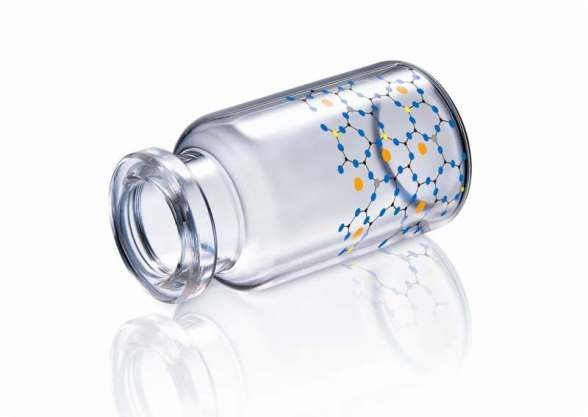Nov 12 2013
SCHOTT unveiled SCHOTT Vials DC, which further minimize the risk of glass delamination. The company optimized its manufacturing process to ensure that SCHOTT Vials DC have a more homogeneous surface and high chemical stability, and tests the vials using the SCHOTT Delamination Quicktest, a first-of-its-kind, patented test method that documents a container’s tendency toward delamination. For the first time ever, SCHOTT has developed threshold values that it can monitor over the course of the manufacturing process to control and minimize the risk of delamination. SCHOTT Vials DC will be available as 2R to 10R ISO vials starting at the beginning of 2014, and will be on display at the American Association of Pharmaceutical Scientists (AAPS) Annual Meeting and Exposition in San Antonio, Texas on November 11 to 14, 2013 at booth #4209.

SCHOTT introduces SCHOTT Vials DC—a new pharmaceutical vial with minimized delamination risk.
Concern over the problem of delamination—the peeling off of flakes from the inner glass surface of a pharmaceutical vial as a result of interaction with the formula—has risen in recent years following numerous vial recalls. In turn, the U.S. Food and Drug Administration is explicitly requiring that pharmaceutical companies manage their risks more closely.
SCHOTT Vials DC thus represent an improved packaging product for pharmaceutical companies interested in lowering the risk of delamination. These vials are a viable alternative not only for new products, but also for products that are already well established in the marketplace.
A more homogeneous surface thanks to a better production process
The causes of delamination have been researched quite thoroughly and are well understood. “When the bottom of the vial is formed, volatile components like boron and sodium evaporate,” said Gerry Wilkins, Director of Sales for SCHOTT North America. “They then go on to form inhomogeneous spots on the glass surface near the bottom of the vial that show a higher tendency to delaminate. With our new SCHOTT Vials DC, we have advanced the production process to ensure that the glass surface is more homogeneous and thus less susceptible to delamination.”
To confirm this effect, SCHOTT conducted storage studies with systems that showed a high tendency toward delamination while using standard Type I vials. The results showed that SCHOTT Vials DC remained stable even after six weeks of storage involving a 15 percent potassium chloride solution and a 10 percent sodium thiosulfate solution at a temperature of 60 degrees Celsius, while conventionally manufactured vials showed clear initial signs of delamination.
How the SCHOTT Delamination Quicktest works
SCHOTT is the first manufacturer capable of determining the risk of delamination based on threshold values, and then monitoring these values over the course of manufacturing. To achieve this, the company developed the patented SCHOTT Delamination Quicktest. “In the past, the vials had to be examined carefully with a stereo microscope during testing in order to comment on delamination. For this reason, it was impossible to control the production process in a timely manner,” added Wilkins. “In the SCHOTT Delamination Quicktest, a certain number of vials are removed from every batch. The random samples are then subjected to stress for four hours inside an autoclave to tease out the delamination critical zone. In a second step, the vials are filled with high purity water (WFI-Water for Injection), and sodium is extracted inside an autoclave. The volume of sodium extracted correlates with the probability that the vials will experience delamination at a later point in time.” By monitoring these values and adhering to certain threshold values, SCHOTT is now able to control the risk of delamination for the first time ever.
About SCHOTT
SCHOTT is an international technology group with more than 125 years of experience in the areas of specialty glasses and materials and advanced technologies. SCHOTT ranks number one in the world with many of its products. Its core markets are the household appliance, pharmaceuticals, electronics, optics, transportation and architecture industries. The company is strongly committed to contributing to its customers’ success and making SCHOTT an important part of people’s lives with high-quality products and intelligent solutions. SCHOTT is committed to managing its business in a sustainable manner and supporting its employees, society and the environment. The SCHOTT Group maintains close proximity to its customers with manufacturing and sales units in all major markets. Its workforce of around 16,000 employees generated worldwide sales of $2.6 billion (approximately 2.0 billion euros) for the 2011/2012 fiscal year.